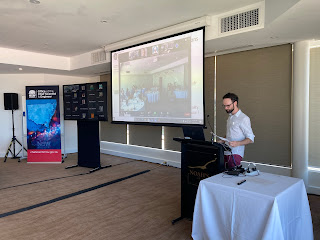The Cognitive Psychology Research Group of the School of Psychology, University of Newcastle, hosted the Australasian Mathematical Psychology Conference (AMPC) on 11 and 12 February 2021. The conference was a great success and received unanimous positive feedback on its innovative format.

Thursday, 18 February 2021
Wednesday, 17 February 2021
Is colour really that important? PhD student Chloe Peneaux suggests birds' colour could mark population decline
A recent publication by UoN School of Psychology’s PhD student, Chloe Peneaux, has made it into a short list of just four papers nominated for the best paper published by an Early Career author in the international journal IBIS in 2020. Her paper titled “The potential utility of carotenoid‐based coloration as a biomonitor of environmental change” was selected by IBIS Editors and the final vote for the best overall paper is now over to the wider ornithological community.
Chloe argues that measuring brightly coloured morphological
features in birds could proactively ascertain whether populations are at risk
of declining. This is because bright markings often correlate with an
individual’s reproductive success. She shows that coloration measurements could
easily become standard practice within widespread banding programs.
To cast your vote, go to https://bou.org.uk/ibis/best-ecr-paper-of-2020/



